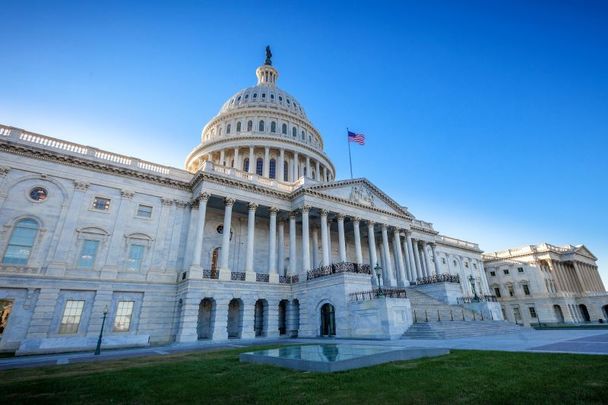A bipartisan US Congressional delegation led by Senator Chris Murphy (D-Conn.) is heading to London and Dublin from today, August 23.
Murphy, a member of the US Senate Foreign Relations Committee, is leading the bipartisan, bicameral congressional delegation.
The US lawmakers will meet with officials in London and Dublin "to discuss securing peace in Northern Ireland, the war in Ukraine, strategic implications of AUKUS, and transatlantic coordination on competition with China."
IrishCentral understands that the British government's controversial Northern Ireland Troubles (Legacy and Reconciliation) Bill is set to be discussed.
Murphy will be joined by US Senators Chris Coons (D-Del.), Dan Sullivan (R-Alaska), Markwayne Mullin (R-Okla.), Majority Whip Tom Emmer (R-Minn.), and US Representatives David Joyce (R-Ohio), Dan Crenshaw (R-Texas), Jake Auchincloss (D-Mass.), and Mike Lawler (R-N.Y.).
The visit occurs the same month that a bipartisan congressional group, including Congressman Lawler, wrote to Northern Ireland's Secretary of State Chris Heaton-Harris and Northern Ireland Minister of State Steven Baker to "restate our profound concern about the substance and potential consequences of the Northern Ireland Troubles (Legacy and Reconciliation) Bill."
Elsewhere, the Ad Hoc Committee to Protect the Good Friday Agreement, including Senator Murphy, also issued a letter to UK Prime Minister Rishi Sunak on August 21 regarding the Legacy legislation.
In its letter, the Committee wrote in part: "The Northern Ireland Troubles (Legacy & Reconciliation) Bill, which your government now plans to bring forward in the near-term future in the House of Commons, has been met with almost uniform opposition in Northern Ireland.
"The bill would violate the United Kingdom’s international law obligations under the European Convention on Human Rights and the International Covenant on Civil and Political Rights, and is further inconsistent with the Belfast/Good Friday Agreement.
"Nothing has changed except the list of objections and the breadth of the opposition. The bill will only provoke a decade of unproductive litigation. The festering of historical grievances will continue.
"This legislation will also harm your concerted efforts to develop a new trade relationship with the United States, given the clear bipartisan opposition in the US Congress to the current legacy proposal.
"Existing mechanisms, while not perfect, have been making progress and in certain instances have produced dramatic results. To a significant extent, the lack of progress in existing mechanisms has been a function of stonewalling by previous UK governments.
"We urge you to break from these past failures and return to the NDNA [New Decade, New Approach] agreement as the basis for addressing the legacy of the Troubles. This is a far superior alternative than the current bill, and it allows you to build on your success in delivering the Windsor Framework, which is moving Northern Ireland in a new and more positive economic direction."
@HocGfa has written @RishiSunak on legacy bill “ Nothing has changed except list of objections & size of opposition.”Victims are denied justice & Congress will block trade deal @USAinNI @peterkyle @SJAMcBride @NIOgov @KarenPierceUK pic.twitter.com/6vki0Y1gTT
— Ad Hoc Committee to Protect GFA (@HocGfa) August 22, 2023
The Northern Ireland Troubles (Legacy and Reconciliation) Bill has been opposed by politicians in Northern Ireland, Ireland, and the US, UN experts, and the British public since it was introduced in May 2022.
Last month, British MPs voted 292 - 200 to disagree with an amendment to the Bill that would remove the conditional immunity clause.
The amendment, passed in the House of Lords in June, sought to remove a clause from the Bill that would prevent the Independent Commission for Reconciliation and Information Recovery (ICRIR) from granting a person immunity from prosecution.
The UK House of Lords is set to consider the Commons amendments in September.




Comments